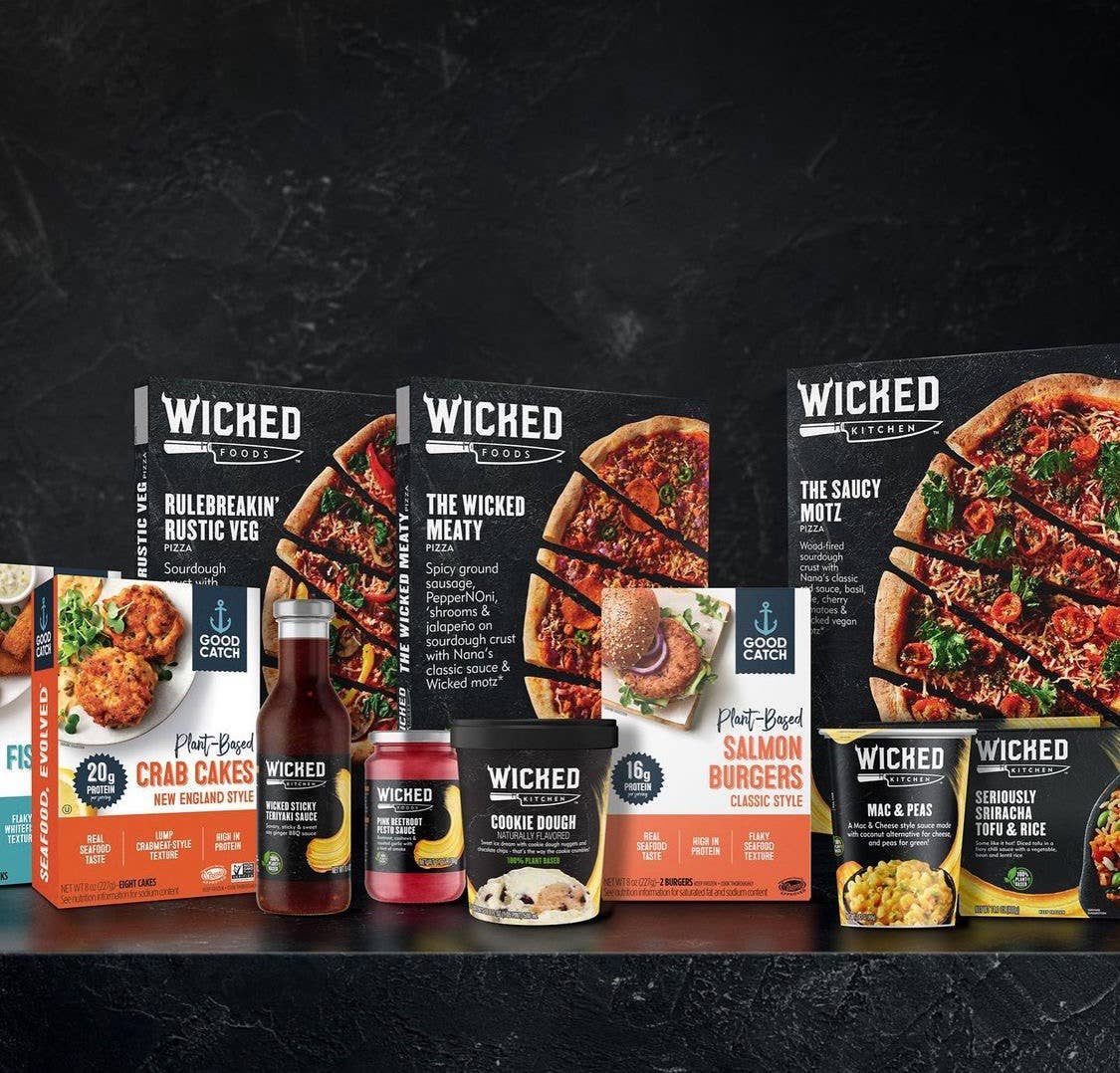
Bumble Bee to Offer Plant-Based Fish to Meet Consumer Trend Away from Tuna
A natural progression as one tries to eliminate red meat from their diet is to lean on fish. But once you are ready to nix that—especially after understanding the environmental stress commercial fishing places on our oceans—what alternatives can you turn to? Soon, Bumble Bee Foods will offer a great option with vegan tuna from Good Catch Foods.
The seafood giant is the latest mainstream food company to enter the plant-based food space. In an announcement today, Bumble Bee said that it has been looking for ways to get into the plant-based space for years; now, they are moving to make it a reality by partnering with alternative seafood company Good Catch.
“[Bumble Bee] was having a hard time developing plant-based seafood on its own,” CNN reports. “So it decided to go into business with Gathered Foods Corporation, which owns plant-based seafood company Good Catch. Bumble Bee plans to help with Good Catch's sales and distribution through the joint venture.”
The partnership with Good Catch is smart. It’s a clear leader in the alternative fish space that already has brand credibility and a proven plant-based fish formulation.
Good Catch has been available in Whole Foods and Thrive Market for the last year, and recently received funding from General Mills's venture branch, 301 Inc. Its plant-based tuna is made from a blend of pea protein, beans, soy, and algae oil for plenty of omega-3 fatty acids, protein, and fiber. And, it actually tastes good while being complemented by a sound nutritional profile. Perhaps most important: no fish or oceans are harmed in the making.
A New Generation of Seafood
“Bumble Bee is on a mission to create a new generation of seafood lovers and in addition to the company’s ongoing industry-leading sustainability efforts, playing a lead role in accelerating the accessibility of plant-based seafood is an important and bold move in fighting for the health of our oceans,” Todd Putman, EVP & Chief Growth Officer at Bumble Bee Foods told The Beet.
“Through the partnership, Bumble Bee will leverage its vast sales, distribution, and food production expertise to accelerate the accessibility of Good Catch products to consumers across the country, and as an independent company, Good Catch will remain focused on developing and marketing great-tasting plant-based products. We do expect that a substantial number of U.S grocery stores and restaurants will offer Good Catch products by mid to late summer.”
While Bumble Bee has had its fair share of missteps, they acknowledge it and say they are trying to do better, especially as it related to the environment. Perhaps the plunge into plant-based seafood, and association with The Good Catch brand, may help in its quest for redemption both financially and morally.
First, the company was implicated in a price-fixing scheme and pled guilty and paid a $25 million fine. Then last year, it filed for bankruptcy and was bought by a Taiwanese company.
The per capita consumption of tuna has fallen from 3.7 pounds in 1990 to 2.1 pounds in 2018. One reason may be that the fishing practices are known to sweep dolphins into the large nets as they troll for tuna, thereby killing the innocent mammals. Another reason could be the worry over mercury consumption in our diets.
Tuna is known to be high in mercury and general guidelines call for people to vary their fish consumption. Or avoid it altogether. That's why the partnership with Good Catch makes so much sense. And it's one reason that Jan Tharp, Bumble Bee's CEO since 2018, says things are looking up.
"We do understand and share the concern regarding the impact of plastic in the ocean, especially as it relates to the pollution aspect of it as well as human health," Tharp told CNN. "We do take that subject extremely seriously, and we know that there's a lot of work and research that still has to be done."
One of the growing reasons people are shifting to meat and fish alternatives, in addition to animal welfare, is to reduce their environmental impact. Bumble Bee is acutely aware of the stress commercial fishing puts on the ocean and planet. They are attempting to mitigate their own impact by working with the National Fisheries Institute and Michigan State University to support research in the area, partnering with the Global Ghost Gear Initiative, which aims to remove fishing debris from the ocean, and also working with third-parties to enforce better conditions on fishing boats and in factories. But perhaps, the best thing they have done yet is decided to dive into the plant-based food space.
More From The Beet






